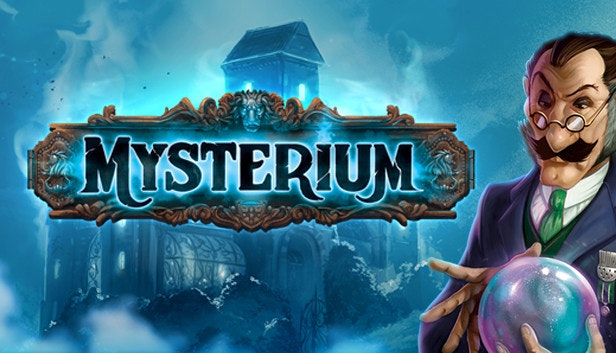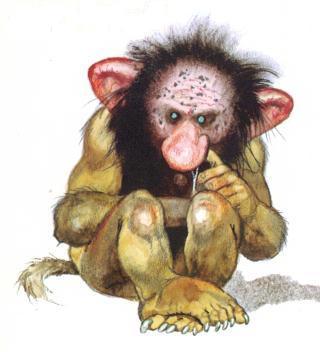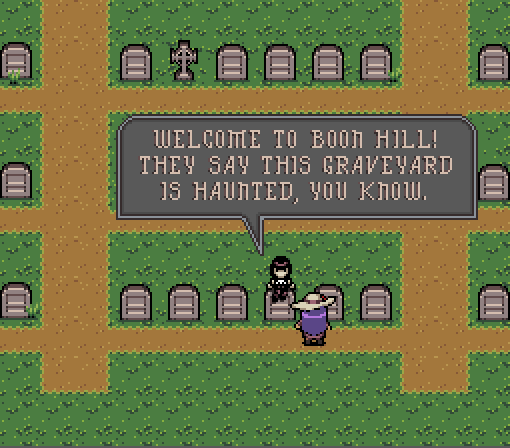The Final Girl: it’s a trope that’s sure to resonate with any horror fan, regardless of their level of interest or devotion to the genre. Referential to the trend of horror media leaving a solitary female character as its “last person standing,” The Final Girl is generally defined as being that remaining woman or girl who’s left to confront whatever terror killed and/or eliminated the rest of said woman or girl’s group and initiate the final battle or confrontation. Although that’s all that’s necessary to qualify a character as a Final Girl, typically said girl also was comparatively innocent or naive prior to the horrific set of events she found herself forced into, is resourceful, is a brunette, and, over the course of the story, becomes a hardened survivor. As Carol J. Clover states in her book Men, Women, And Chain Saws: Gender In The Modern Horror Film, the trope was initially introduced into the horror genre in 1970’s and 80’s slasher films. However since then it’s burst into popularity, becoming practically a staple in horror movies.
While certainly not as prevalent as in horror movies (where I believe that the trope is in more movies than it’s not), horror video games have also not escaped the clutches of this prevalent trope. Rebecca Chambers from Resident Evil 0, Ripley from Alien: Isolation, and Ellie from The Last of Us are just two examples of the trope in action. While not all female protagonists in horror/thriller games technically fall under this trope – some were never in groups, some had a few others survive alongside them – many embody at least one or two qualifications, particularly the quest to overcome all odds so crucial to the “scary” aspect of horror movies. And while horror games have some of the largest amounts of female characters (and protagonists in particular), I’ve struggled with how to view these female characters in terms of proper representation and feminist-friendliness for the longest time.
On one hand, female protagonists have a slightly more noticeable presence in horror video games than in other game genres, and generally when they are featured, they’re strong and admirable. They’re smart, often using their wits to get them out of the horrible situations they find themselves, which positively paints the power of intelligence. They develop into characters capable of taking care of themselves if they’re not already more than able to do so, assuming resourcefulness often attributed only to male characters. Plus, in a genre where immersion into the plight and experience of the main character is even more crucial than typically necessary due to the context of these games and their inherently frightening and startling nature, compelling a predominantly male player base to sympathize with and embrace the stories of these female characters is certainly a good thing.
However, on the other hand I question why female characters are seen as fitting protagonists in horror games more often than, say, action or adventure games and whether this has any roots in traditional gender roles. It is, after all, often acknowledged that female characters are left as the last surviving characters and have their first-hand experiences highlighted in these situations in order to increase the amount of fear the viewer, or in this case the player, experiences. This draws upon old, tired gender norms that women are naturally weaker or more vulnerable, theorizing that this may make the fear more palpable and intense. Although these female characters demonstrate their capability and their inner strength, does that weigh out the fact that even the slightest perceived bit of vulnerability makes her a target and a tool for inducing greater fear. This isn’t even mentioning any “instinctual” reaction to save or take care of the female character the game might try and create within the player.
In the end, I’m still torn on whether it’s appropriate to showcase female characters from horror games as feminist icons when, in all likelihood, they are at least partially being used to “up” the frightening tension. Regardless of my or even your own personal answer to this question, I think it’s important to at least examine all of these angles when considering the role of female characters in horror video games.





7 thoughts on “Fear Through Her Eyes: Analyzing the Female Character in Horror Games”
Wow! What a fascinating blog. I love discussing tropes in video games. Tropes exist just about everywhere – video games, written works, art, etc.
I recently presented at a pop culture conference in Rhode Island. My presentation focused on the sexualziation and exploitation of the little sisters from the Bioshock series. I mention the trope of the natural child and the way in which the little sisters fit the bill. I also break down and reassemble the construct of innocence in regards to fictional children in video games.
I think, to a certain extent, Eleanor Lamb from Bioshock 2 falls victim to the final girl trope. Her “daddy” gets taken away from her and all she has left is her somewhat unbalanced mother, Sophia Lamb. She transitions from a naive character who participates very little to an active character who dons the big sister suit and takes control. What do you think?
I brought this up while commenting on another post, but I think the dilemma this sort of female character poses has nothing to do with her own characterization. The problem is how men are characterized within the same genre.
It’s great that horror games offer strong, intelligent women as protagonists. But then they turn around and offer action heroes for their male protagonists. In my earlier comment, I compared Isaac Clarke to Ellen Ripley. I still think those two characters get to the heart of the issue. Deadspace and Alien: Isolation offer similar narratives in similar settings. But Deadspace has a Die Hard clone, armed with power tools, saving the day from an undead army.
It’s not that Ellen Ripley is a weak character. But in her genre, she is set alongside too many Isaac Clarke’s. Imagine if Clarke and Ripley traded games, provided Deadspace did not sexualize Ripley. In other words, make Ripley the action hero and Clarke the vulnerable, unlikely savior. I think that would have done a great service for players of both sexes. (And helped out the existing female characters within horror who belong to the unlikely savior mold.)
I think you miss the context of what each horror game is going for. The last few RE games lean toward the action/shooter genre, but they still feature female action heroes. Silent Hill features male heroes who can barely swing a pipe with survivalist agency.
You actually touch on one of the reasons I dislike Dead Space with your own issues with the game. It’s presented as this scary game while giving you an uber cool weapon gimmick while the series moved into full blown shooter (beyond RE’s changes).
What we have to look at first is what the game is going for even within a genre. It’s not so much “He’s a guy let’s add a whole combat system because of that, she’s a girl let’s remove any plans for combat.” No developer would complicate their production plans over that.
I have never played RE or Silent Hill, so I cannot comment on their characters. But even assuming those games flip the genre’s tropes, like I described in my last comment, they would still seem like exceptional cases to me.
The problem is that developers do think about their genre’s conventions. They would be bad at their jobs if they didn’t. If you work in a specific genre, you are always either subverting or embracing that genre’s past.
If you write science fiction, you are always thinking about Asimov and Philip K. Dick. If you make spaghetti westerns, you’ll keep Sergio Leone in mind. And if you develop survival horror, you have tropes coming from both films and games. More specifically, you are working in the shadow of Alien, Evil Dead, and Doom.
Maybe Silent Hill does subvert convention in the best way possible. The problem is that the convention still exists. Tropes have a lot of inertia. Without a concentrated effort by developers as a whole, it’s not likely that horror games will just walk away from their history.
“I have never played RE or Silent Hill, so I cannot comment on their characters. But even assuming those games flip the genre’s tropes, like I described in my last comment, they would still seem like exceptional cases to me.”
These franchises are the corner stones of survival horror. They are THE example. I would argue anything deviating from them would be the exceptional standards.
“If you write science fiction, you are always thinking about Asimov and Philip K. Dick. If you make spaghetti westerns, you’ll keep Sergio Leone in mind. And if you develop survival horror, you have tropes coming from both films and games. More specifically, you are working in the shadow of Alien, Evil Dead, and Doom.”
I’d like to think survival horror games all trail back to Clock Tower (as specifically a game genre). Going behind that I would liken Clock Tower Twilight Zone or Hitchcockian tropes before I think about Alien, Evil Dead, or Doom (the latter two essentially ‘action horror’ which only recently became a thing in gaming).
RE specifically takes tropes from Night of the Living Dead – Zombies, dwindling ammo, the real danger being humans, etc. Silent Hill takes a lot from HP Lovecraft, is such a way I don’t have time to fully analyze(!).
So I think it’s more complicated and nuanced than saying these games trace back to those franchises. I can get the Alien example, though, as it gave birth to modern horror (arguably). Evil Dead and Doom I disagree with in terms of the survival horror genre.
“Maybe Silent Hill does subvert convention in the best way possible. The problem is that the convention still exists. Tropes have a lot of inertia. Without a concentrated effort by developers as a whole, it’s not likely that horror games will just walk away from their history.”
Again I say Silent Hill is one of the two biggest franchises of survival horror, and examples against it are the subversion. But aside from that; what exactly is your argument? Is it merely having more variety of horror games? I think it’s branching out just fine, with Slenderman The Eight Pages really giving the genre a kick in the shin to get things in gear (Alien Isolation is more or less an adaptation of Eight Pages). I consider Dead Space a step back. The RE: Revelations series is also a course correct for the RE series. The new Silent Hill also looks to continue the mental horror the series is known for.
Everything is just fine.
I don’t want to get sidetracked by a debate over gaming history. It is an interesting subject, but not what the original article was discussing.
Instead, I’d like to make my point a different way. Horror games, and games in general, consistently give more agency to men than women. In my opinion, that is what makes the Final Girl trope so troubling for feminists.
It is hard to question that games deny women agency, even when they admit a female character strength and plausibility.
“I don’t want to get sidetracked by a debate over gaming history. It is an interesting subject, but not what the original article was discussing.”
When speaking of trends; constants and deviations, history is the last thing you wanna dismiss like that.
“Instead, I’d like to make my point a different way. Horror games, and games in general, consistently give more agency to men than women.”
This is why history is important; in horror games females have plenty of agency. In general games I’d challenge you to find playable females who are less capable than playable male characters. In terms of game systems, it would make no functional sense for female characters to have less ‘agency’ (gameplay abilities) because their polygonal model is the feminine form. Resident Evil Code Veronica features a female protagonist with a male character being playable for less than half of the game (and he even dies to forward the female’s story). History of the genre is important.
“It is hard to question that games deny women agency, even when they admit a female character strength and plausibility.”
Are you saying female characters are weak even when they’re strong?